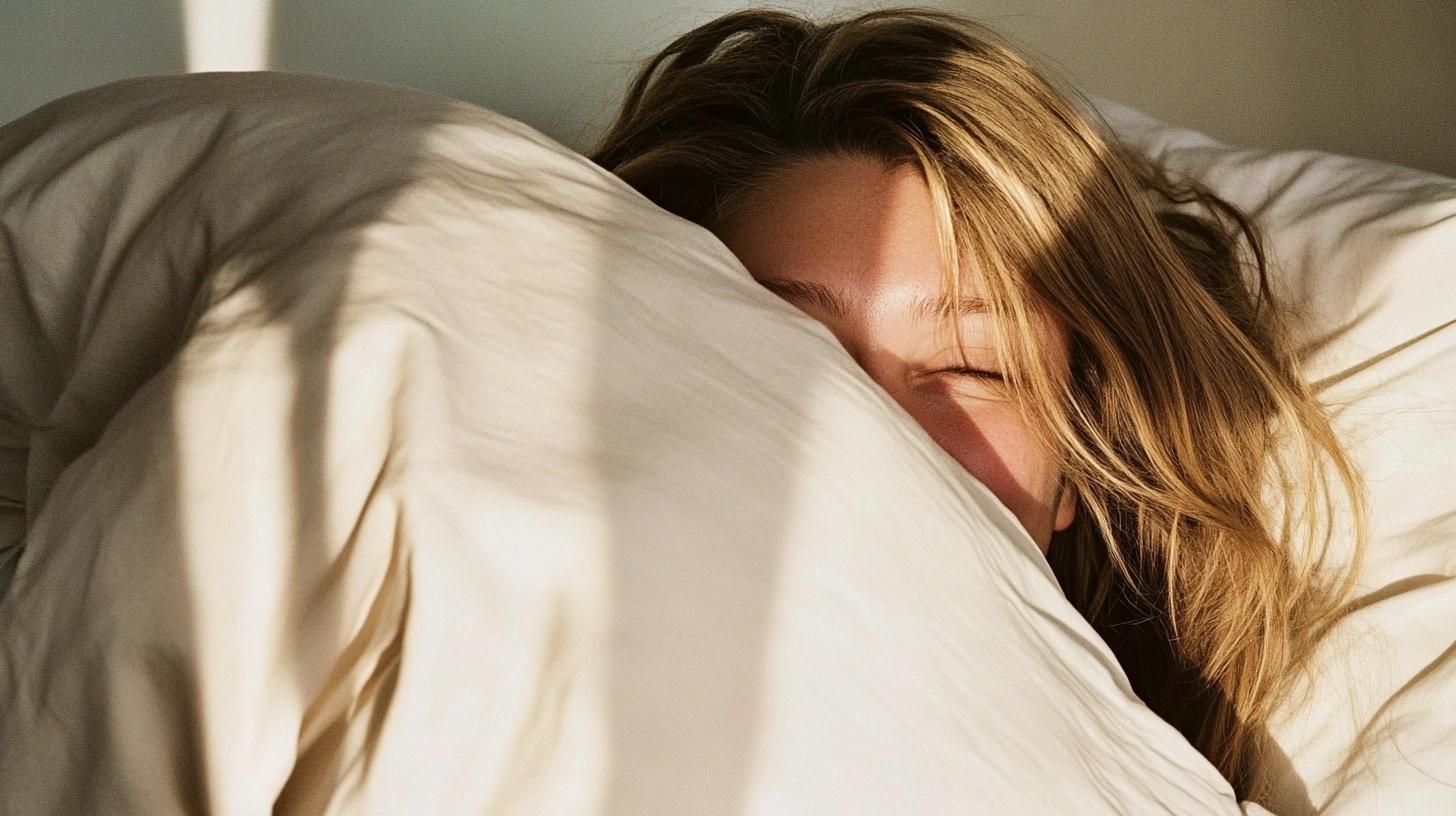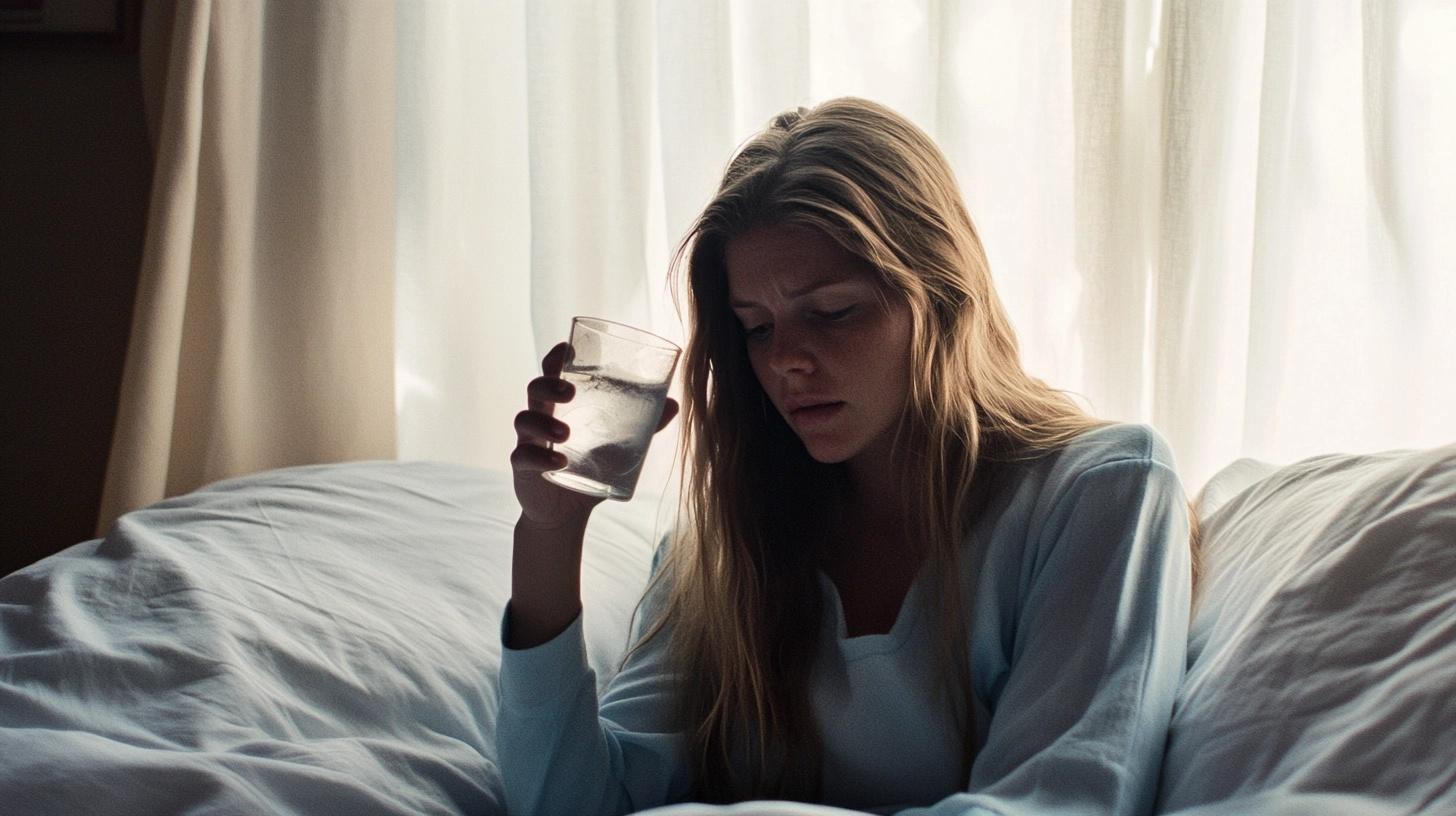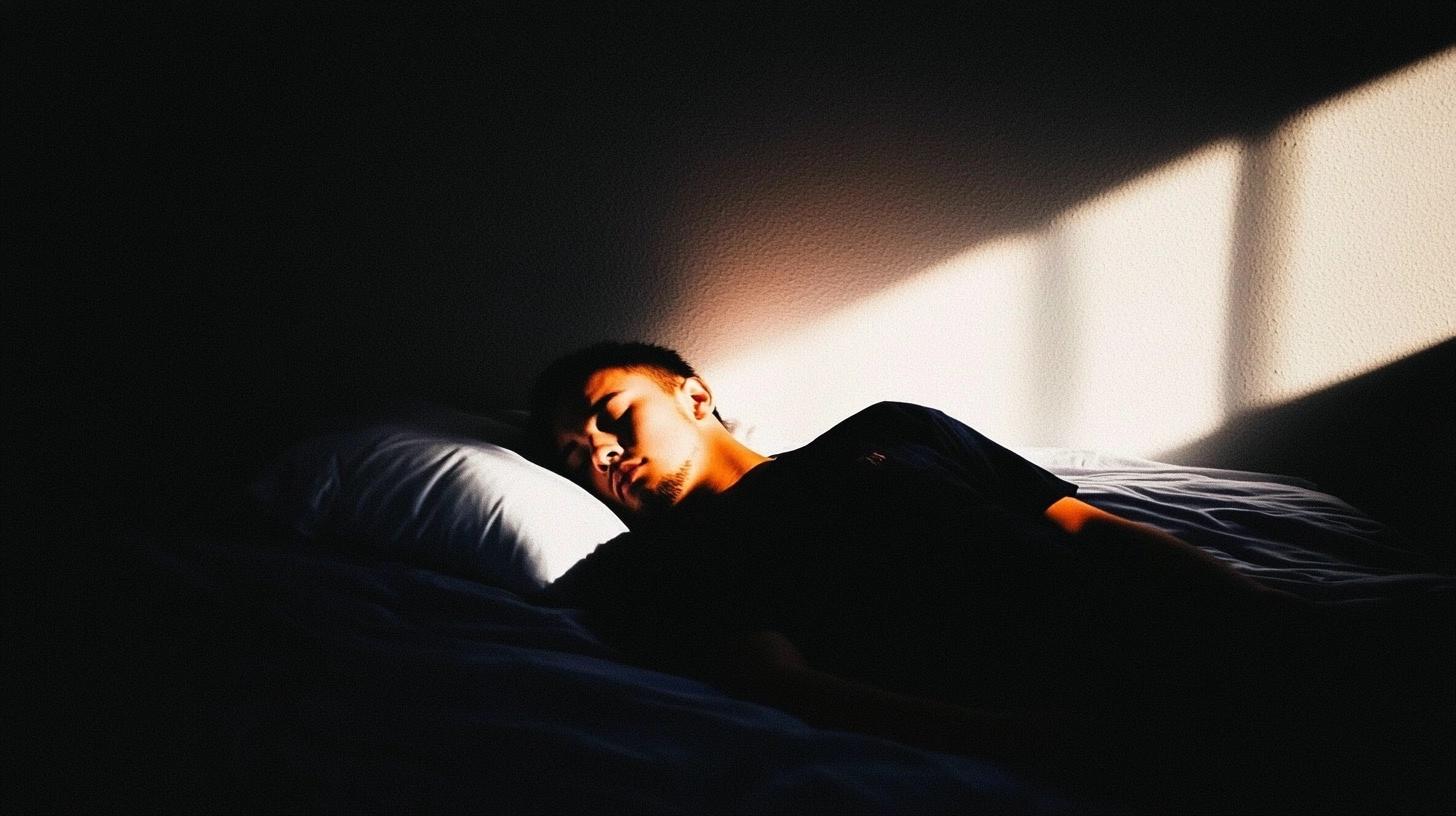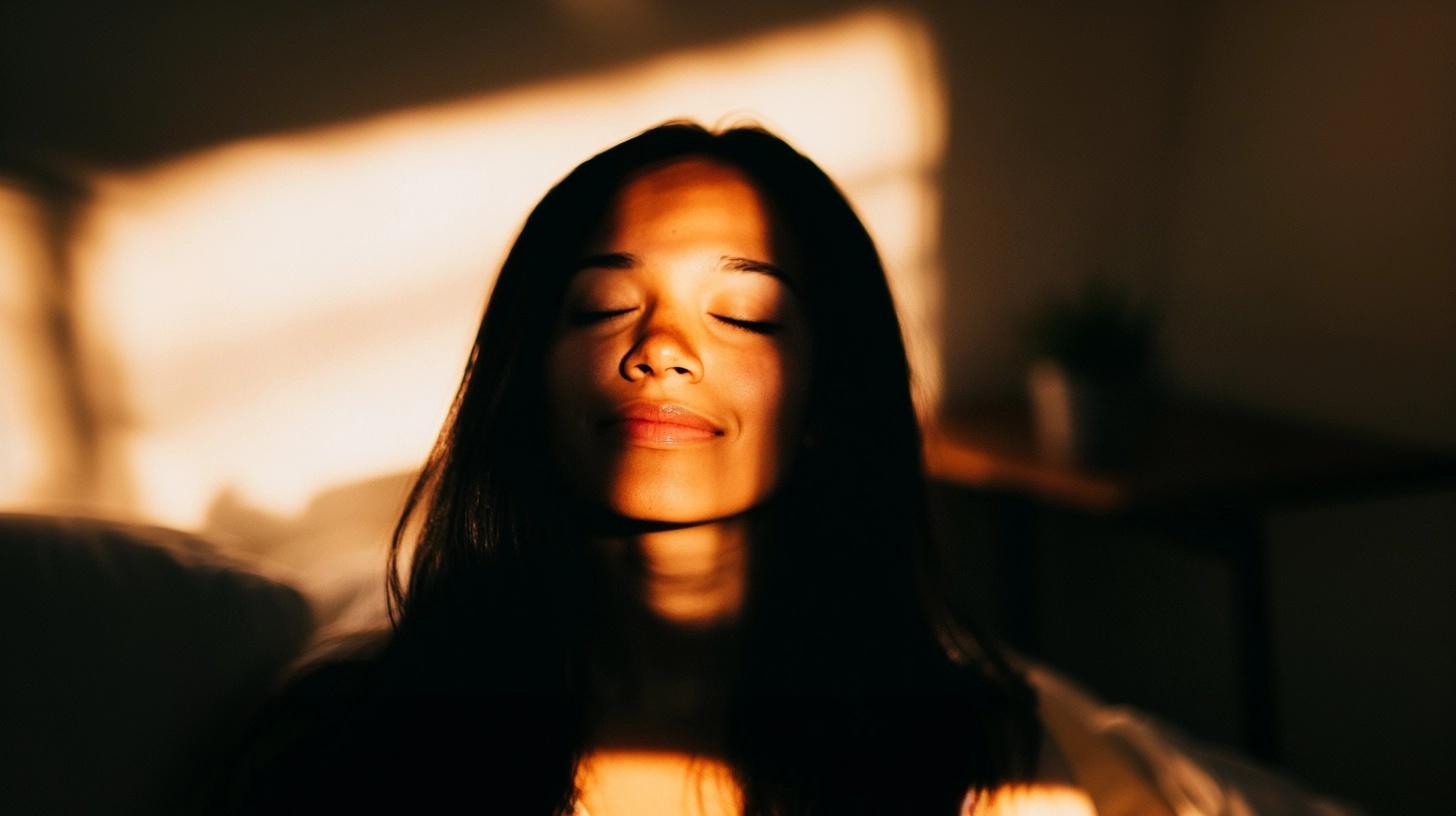How to fall asleep faster: stop those racing thoughts at night
Published

Sleep can be elusive. If you have spent nights lying awake trying to fall asleep, you know how challenging chasing a good night’s sleep can be. You are not alone. According to the Center for Disease Control, 35.2 percent of all adults in the U.S. sleep less than the recommended seven hours per night, and between 10 and 30 percent of adults struggle with insomnia.
We are not in control of when we fall asleep or how much sleep we get. And although some sleep disorders are common, there are some clever lifestyle changes and bedtime habits that can help you get that coveted shut-eye. We sought advice from our resident sleep expert on how to fall asleep faster and from Sleep Cycle users who have developed tricks of their own to improve the quality of their sleep. Bear in mind that if you suspect you have a chronic sleeping disorder, you should always consult a physician.
- How to fall asleep fast: top 3 sleep expert recommendations
- How to go to bed earlier: 10 activities and lifestyle changes that can help
How to fall asleep fast: top 3 sleep expert recommendations
Frida Rångtell, Ph.D., sleep educator and former scientific advisor at Sleep Cycle, offers valuable insights and advice for anyone struggling to fall asleep:
- Keep your circadian rhythm in mind. Make sure to step outside and soak up sunlight during the day and dim the lights in the evening, hours before bedtime. Light exposure is crucial to maintaining healthy circadian rhythms, the internal body clock that influences our sleep and wake cycle.
- Build a routine. Our bodies like predictability, so a consistent bedtime routine could help you fall asleep faster. Find out what helps you relax before bedtime, e.g. practicing mindfulness, wearing socks to bed, reading, or listening to white noise. Make that activity a nightly habit.
- Find your ideal sleep schedule according to your chronotype. Identify the optimal times for you to go to bed and get up in the morning – then stick to them. Regularity is important when it comes to sleep times. Try to go to bed when you are tired enough to fall asleep within a reasonable time window – not too early and not too late. Then, get up at the same time every morning, including weekends. If you stray from your rhythm, the effect on your brain is the same as traveling across time zones. And who wants jetlag without a vacation? In Sleep Cycle, there is a function that helps you keep track of your bedtime and wake-up consistency.
Start a free trial and gain some more insights
But…how to stop those racing thoughts at night?
We know, regardless of the tips mentioned above, when you’re lying in the dark, in peace and quiet, those background thoughts push themselves to the front of your mind. You can’t fall asleep because your mind races, and you’re getting anxious because you can’t fall asleep. It’s a vicious cycle.
As our Head of Sleep Science Michael Gradisar points out, what we’ve learned over the decades is that regardless of the underlying cause, people will often worry before they fall asleep, which makes the situation worse. So what can you do about your racing mind in bed? Mike recommends:
- Mindfulness body scan practice: we carried out a study where we asked people to listen to a 15-minute mindfulness body scan at bedtime – and to practice this for 2 weeks. We found that people who regularly took more than 30 minutes to fall asleep, fell asleep about 50% faster after 1 week of practicing this technique. You can try Sleep Cycle’s Body Scan, available in the Sleep Aid section of the Sleep Cycle app.
- Watch TV to distract from worries: yes. About 30% of people fall asleep watching TV before bed. In fact, there’s practically no relationship between watching TV and sleep. But keep in mind that this should be a temporary solution. Despite TV’s calming effect, late-night light exposure to artificial light shifts your circadian rhythm and melatonin levels, potentially delaying your bedtime even more. So try to watch TV earlier in the evening, keep the volume low, and set an episode limit.
- Find something that helps distract and relax your mind: in the end, you need to find something that removes those racing thoughts and worries from your mind. Fact; Two out of 3 people say they use technology to distract themselves from their worries before bed. Although the prolonged use of electronic devices at night can also disrupt your sleep, you can use them at the beginning of your sleep routine and in moderation to distract yourself and start winding down for a good night’s sleep.
However, remember to:
- Avoid looking at things that might make you stressed or anxious before bed (e.g. work emails, the news). And instead of staying in bed and replaying anxious thoughts,
- Get up, go to another room, do a calming activity like reading or journaling if you are in bed and replaying anxious thoughts. Then return to bed and try again.
- Make time during the day to reflect and write down things that you think you might worry about in bed. Then write down potential solutions.
How to go to bed earlier: 10 activities and lifestyle changes that can help
These proven tips come from our sleep experts and from Sleep Cycle users.
- Read. Reading was the top user tip for falling asleep faster. Users shared that when they read before going to sleep, even if only for 5 minutes, sleep came more quickly.
- Take a warm shower or bath in the evening. This will help lower your core body temperature, which signals to your body that it’s time for bed.
- Listen to soothing sounds and calm music while in bed. Relaxing sounds, like those found in Sleep Cycle’s Sleep Aid library, can help users fall asleep faster. If you are struggling to decide what to listen to, try playing sounds found in nature. A study conducted by the University of Sussex found that natural sounds were more conducive to sleep than artificial sounds. Water sounds are the most popular with our users, especially the tracks ‘Warm Breeze’ and ‘Waves’.
- Exercise or do some form of physical activity during the day. Multiple users reported an improvement in sleep quality, and falling asleep quicker when they went for a walk.
- Refrain from consuming caffeine later in the day. It can keep you awake longer than you would like.
- Create an ideal setting for sleeping. “We keep the bedroom cool and really dark,” one user commented.
- Remove a visible clock from your bedroom. Being able to see the time when lying in bed can be disturbing.
- Watch what you eat and when. Your diet can have a strong influence on your sleep. Try not to eat close to bedtime.
- Leave room in the schedule for winding down. We don’t have an on/off switch, so it is important to give yourself time to prepare for sleep, mentally and physically.
The next time you’re having trouble drifting off to sleep, follow our expert’s advice and give these recommendations a try. Discover the one that works best for you. You may soon find yourself in the middle of a sweet dream.






